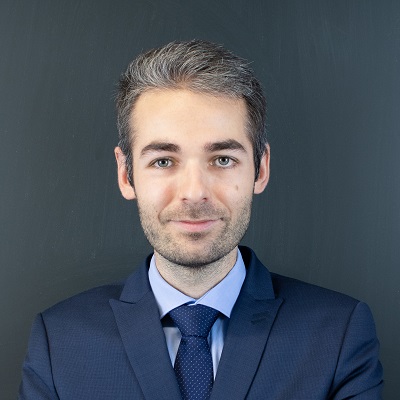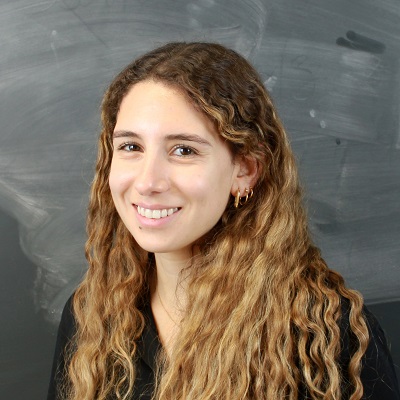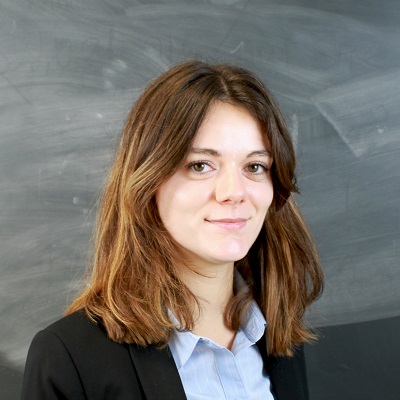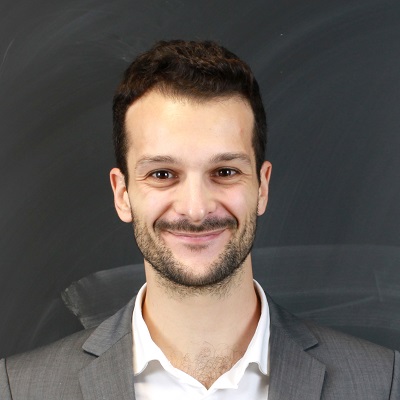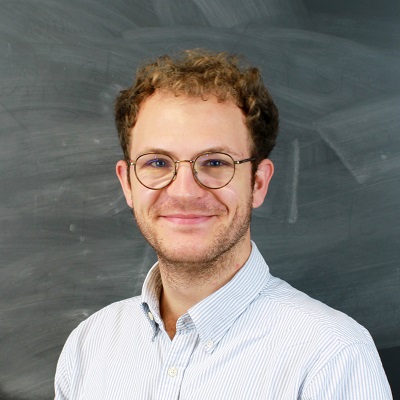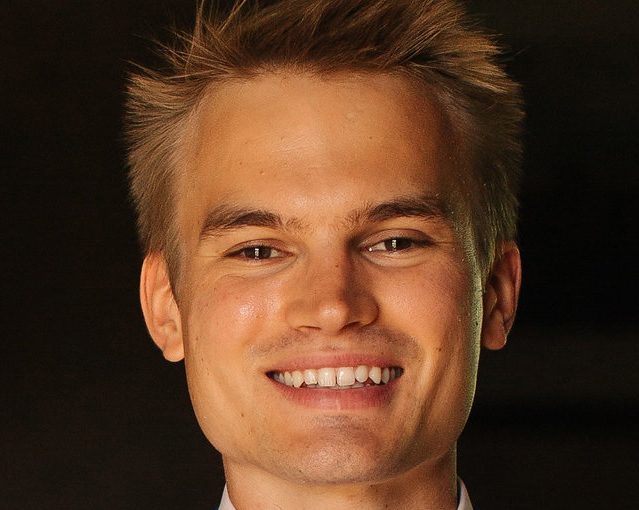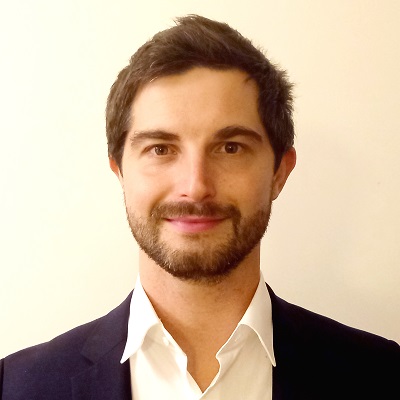
We are proud to announce that Arnak Dalalyan, director of CREST, Hi! PARIS Fellow and Professor of statistics at ENSAE Paris, has been awarded a European Research Council (ERC) Advanced Grant for his project SAGMOS – Statistical Analysis of Generative Models: Sampling Guarantees and Robustness. This highly competitive grant will support his ambitious research at the intersection of statistics, machine learning, and artificial intelligence.
With this new grant, the CREST now hosts eight ongoing ERC projects: three ERC Starting Grants, three ERC Consolidator Grants, and now two ERC Advanced Grants. This remarkable track record reflects the strength, diversity, and international visibility of fundamental and applied research at the lab. Arnak Dalalyan joins a long line of CREST researchers distinguished by the ERC, following for example the recent ERC Consolidator Grant obtained by Yves Le Yaouanq in economics.
About Arnak Dalalyan
A mathematician and statistician, Arnak Dalalyan studied at Yerevan State University (Armenia) before obtaining a PhD in statistics from Le Mans University in 2001, and an HDR from Sorbonne University (formerly Université Pierre et Marie Curie) in 2007. After postdoctoral research at Humboldt University in Berlin and several academic positions in France, he joined ENSAE Paris and CREST, where he has been director since 2020. His research focuses on mathematical statistics and its applications to machine learning, with particular emphasis on robust methods, high-dimensional data, and sampling techniques.
SAGMOS – Statistical Analysis of Generative Models: Sampling Guarantees and Robustness
Generative models — algorithms capable of creating realistic texts, images, music, or molecular structures — are now at the heart of many technological innovations, from artistic creation to drug discovery. The SAGMOS project will provide new mathematical guarantees on the reliability, originality, and efficiency of such models, particularly diffusion models that have become the new standard in the field.
“In recent years, generative models have made remarkable progress. But we still need to understand how much data is required for these models to generate reliable and truly novel outputs. The SAGMOS project aims to bridge this gap by providing precise theoretical guarantees,” explains Arnak Dalalyan.
The project will lead to the recruitment of PhD students and postdoctoral researchers, and to the organisation of international workshops to disseminate its findings.
The ERC Advanced Grant
The ERC Advanced Grant is one of the most prestigious funding schemes in Europe, supporting established researchers with a track record of significant research achievements. The grant allows recipients to pursue ground-breaking, high-risk projects that can lead to major scientific advances. The funding awarded to Arnak Dalalyan reflects the European commitment to frontier research and the scientific excellence of the CREST research centre.
Elio Nimier-David
- Personal website and CV:
https://www.nimierdavid.com/
- Email address:
elio.nimier-david@ensae.fr
- References:
Professor Francis Kramarz, CREST, ENSAE – Ecole polytechnique
Professor Roland Rathelot, CREST, ENSAE – Ecole polytechnique
Professor David Sraer, University of California Berkeley
Professor David Thesmar, MIT Sloan
- Research fields:
Primary field: Labor economics
Secondary field: Public economics, Urban economics, Entrepreneurship
- JMP:
Title: Local Human Capital and Firm Creation: Evidence from the Massification of Higher Education in France
Link: https://drive.google.com/drive/folders/1VQ5ZhonJDtVP7vg2AaYwuSOPOCCFmE15?usp=sharing
- JMP Abstract:
Do college expansion policies promote local economic development? This paper exploits a massive construction policy of new colleges in France over the 1990s to assess the causal effect of higher education establishments. First, I study their impact on education, firm dynamics, employment and wages at the city level. Leveraging the staggered implementation of the policy in an event-study design, I find a persistent rise in the level of education of the local workforce and in firm entry. Firm creation increases by 10% on average, in all major industries. The rise in (i) tradable and (ii) skill-intensive industries indicates that the effect is driven by the supply of educated workers rather than by an increase in local consumption. Incumbent firms experienced lower growth and a higher exit rate following the policy, suggesting displacement effects. Overall, the positive effects dominate resulting in increased economic activity in treated cities. Employment stays constant but is subject to large composition effects: it increases for young skilled workers but decreases for older workers. In addition, province-level analysis suggests that new colleges had non-negative spillover effects on surrounding areas. Finally, I complement city-level results with findings on the long-run individual effects. Relying on differences between cohorts induced by the timing of the policy, I find that cohorts directly exposed to the new colleges became more educated, more likely to be employed and hold more skilled positions.
Etienne Guigue
- Personal website and CV:
https://sites.google.com/view/etienneguigue/home
- Email address:
etienne.guigue@ensae.fr
- References:
Professor Francis Kramarz, CREST, ENSAE – Ecole polytechnique
Professor Isabelle Méjean, Sciences Po
Professor Philippe Choné, CREST – ENSAE
Professor Samuel Kortum, Yale University
- Research field:
Industrial Organization and International Trade
- JMP:
Title: Markups and Markdowns in the French Dairy Market
Link: https://drive.google.com/file/d/1C1a7B1KlNqY3Iamb2FQvn54qZdzzS7qU/view
- JMP Abstract:
Separately measuring firm buyer and seller power is important for policy-making, but challenging. In this paper, we suggest a new methodology to do so and apply it to French dairy processors. These firms exert buyer power when purchasing raw milk, and seller power when marketing dairy products. The analysis is based on plant-level data on dairy firms, with observations on prices and quantities of raw-milk input by origin and output by product from 2003 to 2018. We rely on a production function approach to estimate total margins. The existence of a commodity, (i) substitutable as an input or as an output, and (ii) exchanged on global markets where firms are price-takers, allows us to separately estimate firm-origin markdowns and firm-product markups. We show this methodology can also be useful in other contexts, with more limited data. Markdown estimates imply that dairy firms on average purchase raw milk at a price 16% below its marginal contribution to their profits, while markup estimates indicate that firms sell dairy products at a price exceeding their marginal costs by 41%. Our results show substantial variations in the exploitation of buyer and seller power across firms, products, and time. We analyze how exogenous farmer and processor cost shocks pass through the supply chain. Processors partially absorb such shocks by adjusting markups and markdowns, thus smoothing variations in farmer revenues. It further implies that 65% of subsidies are currently diverted from farmers due to processor buyer power. A price floor on raw milk could be an alternative welfare-improving policy.
Léa Bou Sleiman
- Personal website and CV:
https://sites.google.com/view/leabousleiman/home
- Email address:
lea.bou-sleiman@polytechnique.edu
lea.bousleiman@ensae.fr
- References:
Professor Gilles Duranton Wharton School – University of Pennsylvania
Professor Benoit Schmutz, CREST – Ecole polytechnique
Professor Pierre Boyer, CREST – Ecole polytechnique
Professor Geoffrey Barrows, CNRS – Ecole polytechnique
- Research fields:
Primary Field: Public Economics
Secondary Field: Urban and Environmental Economics
- JMP:
Title: Displacing Congestion: Evidence from Paris
Link: https://www.dropbox.com/s/nskvqggr7b5u958/JMP_LBS_2022.pdf?dl=0
- JMP Abstract:
This paper shows that road-closing policies may have adverse short-run effects on pollution by reallocating traffic toward more congested roads. I study the impact of the 2016 closure of the Voie Georges Pompidou, a one-way expressway crossing downtown Paris, on traffic and pollution displacement. To do so, I rely on a difference-in-difference strategy based on the direction and the timing of traffic, which I implement on detailed road-sensor data. I show that the closure lowered average speed by over 15% on two sets of substitute roads: central streets nearby and the already congested southern ring road. Using air quality data, I show that NO2 emissions increased by 6% near the ring road and by 1.5% near local roads. The reduced-form results on traffic are quantitatively consistent with a calibrated model of shortest route choice, which allows me to recover the underlying rerouting patterns. Even though few displaced commuters diverted to the ring road, they triggered a massive pollution increase because of the U-shaped relationship between emissions and traffic speed. Overall, I estimate that up to 90% of the pollution cost was borne by lower-income residents around the ring road, who lived far away from the new amenity created by the closure and mostly outside the jurisdiction responsible for the closure decision. Finally, I study counterfactual closure scenarios to assess under which conditions those adverse effects could have been mitigated.
Pauline Carry
- Personal website and CV:
https://www.paulinecarry.com/
- Email address:
pauline.carry@ensae.fr
- References:
Professor Pierre Cahuc, Sciences Po
Professor Hilary Hoynes, UC Berkeley
Professor Roland Rathelot, CREST
Professor Benjamin Schoefer, UC Berkeley
- Research fields:
Primary field: Labor Economics
Secondary field: Macroeconomics
- JMP:
Title: The Effects of the Legal Minimum Working Time on Workers, Firms and the Labor Market
Link: https://drive.google.com/file/d/1xz-MerkI1pnNxaCWmJ_XfkjSo8YubQj0/view?usp=sharing
- JMP Abstract:
This paper provides new evidence on how firms and workers adjust to a restriction on low-hour jobs. I exploit a unique reform introducing a minimum workweek of 24 hours in France in 2014 affecting 15% of jobs. Drawing on linked employer-employee data and an event study design, I find a firm-level reduction in the number of jobs and an increase in average hours per worker. Overall, total hours worked in the firm decreased significantly, showing imperfect substitutability between workers and hours. The effects differ by gender: part-time female workers were replaced by full-time male workers. Importantly, reduced-form evidence indicates the reallocation of workers from firms highly exposed to the policy to firms less exposed. To quantify the aggregate impact taking into account these effects, I build and estimate a search and matching model with heterogeneous workers and firms. I find that the minimum workweek destroyed 1% of jobs but no effect on total hours, due to positive general equilibrium effects. Finally, the gender gap in welfare increased by 3% because women were more affected by the direct negative employment effects and benefited less from reallocation effects.
Germain Gauthier
- Personal website and CV:
https://pinchofdata.github.io/germaingauthier/
- Email address:
germain.gauthier@polytechnique.edu
- References:
Professor Alessandro Riboni, Ecole polytechnique
Professor Xavier D’Haultfoeuille, CREST – ENSAE
Professor Elliott Ash, ETH Zürich
Professor Roberto Galbiati, Sciences Po
- Research fields:
Primary Field: Applied Microeconomics
Secondary Field: Political Economy, Econometrics, Machine Learning, Text as Data
- JMP:
Title: Measuring Crime Reporting and Incidence: Method and Application to #MeToo
Link: https://www.dropbox.com/s/jepq64dfauyo1t6/metoo_crime_v6.pdf?dl=0
- JMP Abstract:
This paper studies the Me Too movement’s effects on sex criminality. As many victims do not report to the police, a long-standing empirical challenge with reported crime statistics is that they reflect variations in victim reporting and crime incidence. To separate both margins, I develop a duration model that studies the delay between the incident’s occurrence and its report to the police. The model accounts for unobserved heterogeneity, never-reporters, and double-truncation in the data. I apply it to the police records of large US cities. Contrary to the widespread view that #MeToo was a watershed moment, I find that sex crime reporting had already been increasing for years before its sudden mediatization in October 2017. Nonetheless, the movement had a positive, persistent impact on victim reporting, particularly for juveniles, racial minorities, and victims of misdemeanors and old crime incidents. The increase in reporting translates into drastically higher probabilities of arrest for sex offenders. Using reported non-sexual crimes as a control group, difference-in-differences estimates suggest the movement also had a sizable deterrent effect.
Martin Mugnier
- Personal website and CV:
https://martinmugnier.github.io/
- Email address:
martin.mugnier@ensae.fr
- References:
Professor Xavier D’Haultfoeuille, CREST – ENSAE
Professor Stéphane Bonhomme, The University of Chicago
Professor Laurent Davezies, CREST – ENSAE
- Research field:
Econometrics (theory and applications)
- JMP:
Title: Unobserved Clusters of Time-Varying Heterogeneity in Nonlinear Panel Data Models
Link: https://drive.google.com/file/d/1KhmV8tOcoGdIMMpQ4aaw0ddvyeL5tG4V/view?usp=sharing
- JMP Abstract:
In studies based on longitudinal data, researchers often assume time-invariant unobserved heterogeneity or linear-in-parameters conditional expectations. Violation of these assumptions may lead to poor counterfactuals. I study the identification and estimation of a large class of nonlinear grouped fixed effects (NGFE) models where the relationship between observed covariates and cross-sectional unobserved heterogeneity is left unrestricted but the latter only takes a restricted number of paths over time. I show that the corresponding “clusters” and the nonparametrically specified link function can be point-identified when both dimensions of the panel are large. I propose a semiparametric NGFE estimator whose implementation is feasible, and establish its large sample properties in popular binary and count outcome models. Distinctive features of the NGFE estimator are that it is asymptotically normal unbiased at parametric rates, and it allows for the number of periods to grow slowly with the number of cross-sectional units. Monte Carlo simulations suggest good finite sample performance. I apply this new method to revisit the so-called inverted-U relationship between product market competition and innovation. Allowing for clustered patterns of time-varying unobserved heterogeneity leads to a much flatter estimated curve.
Pierre-Edouard Collignon
- Personal website:
https://sites.google.com/view/pe-collignon
- Email address:
pierre.edouard.collignon@ensae.fr
- Research description:
Pierre-Edouard a doctoral student at CREST – École polytechnique. His main research interests are Macroeconomics and Public Finance with a special focus on time inconsistency issues in optimal dynamic fiscal policy. His secondary research interests are Welfare Economics and Population Ethics.
- JMP:
Title: No Regret Fiscal Reforms
Link: https://drive.google.com/file/d/18gMtZrXqSgDy32_TwN_BLGzb-gk3bmCq/view?usp=sharing
- JMP Abstract:
How should fiscal policy react to shocks ex post while preserving incentives to work and save ex ante? The standard solution involves a commitment to a contingent policy, whereby the initial government sets all the policies for all future states of the world. Contingent policies are unrealistic. As an alternative, this paper introduces ”No Regret Fiscal Reforms”: the government may freely change its fiscal policy provided households do not regret their past decisions. Hence flexibility is provided and incentives to work and save are preserved. Such reforms can be achieved by changing taxes on both capital and labour such that wealth effects exactly compensate substitution effects. In a representative agent framework, I study how a benevolent government optimally uses No Regret fiscal reforms and compare them to optimal contingent policies. Both approaches yield very similar allocations and optimal No Regret reforms only lead to small welfare losses. Second, I consider Near-Rational Expectations i.e the government recognizes that agents’ beliefs about the distribution of shocks may be different from its own and wants to implement a policy robust to this unknown difference. No Regret fiscal reforms are fully robust to this departure from rational expectations. Finally, I study No Regret fiscal reforms with wealth and skill heterogeneity.
Julien Monardo
- Personal website:
https://sites.google.com/site/julienmonardoeconomics
- Email address:
julien.monardo@ensae.fr
- Research description:
He is a micro-economist with research interests in empirical industrial organization and structural demand estimation. In his research, he develops methods to estimate substitution patterns, i.e., how consumers substitute across differentiated products.
- JMP:
Title: Measuring Substitution Patterns with a Flexible Demand Model
Link: https://drive.google.com/file/d/1D2OiyqSZVTKUs4HkxEH4Nb9tYMcJ29ag/view?usp=sharing
- JMP Abstract:
Many empirical studies require estimating how consumers substitute across differentiated products. Examples can be found in a wide range of fields of economics, including environmental economics, health care economics, industrial organization, and international trade. In this paper, I propose a computationally simple, easy-to-implement, flexible approach to estimate substitution patterns determined by how close products are in product characteristic space. To this end, I rely on an inverse market share model that (i) is consistent with utility maximization; (ii) does not use any specific assumptions about how substitution patterns depend on product characteristics; and (iii) is agnostic about individual consumer behavior. I find that my approach only requires solving a convex quadratic program with a small number of linear inequality constraints. I further find that it can outperform the state-of-the-art BLP approach pioneered by Berry, Levinsohn, and Pakes (1995), which accommodates flexible substitution patterns by using the random coefficient logit model. In particular, this occurs when (i) there is complementarity in demand; (ii) BLP is misspecified about its random coefficients; and (iii) consumers choose baskets of products. Lastly, I apply my approach to a well-known dataset for breakfast cereals and compare it to BLP. I find that it provides a better fit to the data than BLP. I further find that it yields similar median own-price elasticities, and higher median cross-price elasticities, markups, and merger price effects.
Gwen-Jiro Clochard
- Personal website:
https://sites.google.com/view/gwen-jiro-clochard/
- Email address:
gwen-jiro.clochard@ensae.fr
- Research description:
His research lies at the intersection of development and experimental economics. Specifically, he investigates the effect of personal contact on trust and between groups.
- JMP:
Title: Improving the Perception of the Police by the Youth
Link: https://drive.google.com/file/d/1ENP6dUnmOp0Mye01Q6pzT567C37tng0u/view
- JMP Abstract:
While previous research has highlighted the positive consequences of a high trust in the police, parts of the French population exhibit a lack of trust toward the police. In this paper, I use a lab-in-the-field experiment in two high-schools in France to investigate the effect of a brief and controlled discussion – contact – between police officers and students on trust. Results indicate a positive effect of contact on trust at the individual level, i.e. toward the specific police officer met. The magnitude corresponds to an increase of approximately 0.4 standard deviation. However, the effect fails to translate to an increase in the police in general. A theoretical model of belief formation can shed light on why a single contact cannot be sufficient in case of prior – negative – interactions. This paper has implications for the most widely used policy to improve the perception of the police, namely community policing.


